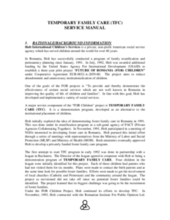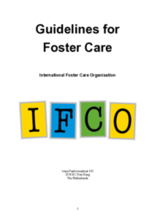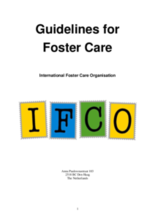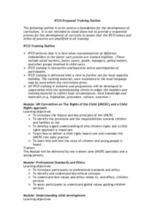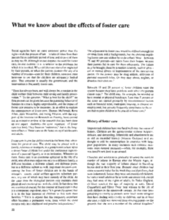Displaying 2161 - 2170 of 2182
In order to investigate orphans' situation and development in Iraqi Kurdistan, samples from the two available orphan care systems, the traditional foster care and the modem orphanages, are examined at an index test and at 1-year follow-u
A manual for the establishment of foster care in Romania as an alternative to the institutional placement of children. Addresses the legal framework, policies, processes, responsibilities and administration surrounding creating and maintaining a foster care system.
Guidelines for foster care, developed by IFCO at a special Working Group Meeting held in Bangkok, Thailand from 1-4 May 1995 in cooperation with the Department of Public Welfare, Bangkok.
Procedural standards outlining the roles and responsibilities of fsoter care authorities and agencies.
A training outline that conveys IFCO values and ethics of practice in foster care services. It provides 13 modules dealing with issues such as the rights of the child, child development, state care, foster care, transition from care, and legal and administrative management of child protection services.
This article, published in the book ‘Assessing the Long-Term Effects of Foster Care: A Research Synthesis,’ provides an overview of the history of the foster care system in the United States and findings from multiple studies on the effects of foster care on children.
This substudy aimed to contribute to a larger study—the Ripple project—through exploring the experiences of practitioners working across child welfare and mental health services regarding collaboration in the care of young people; and to identify practices that might enhance collaborative work and improve mental health outcomes.
The aim of this paper is to define social and psychological problems faced by children of unknown parentage in foster families in the governorate of Muscat, Oman.
Changing Futures is a website for young people made by young people with experience of Tusla [child welfare] services in Ireland.
This leaflet outlines six important principles for foster carers and adopters to hold in mind as they work together to help children to move to adoption.

